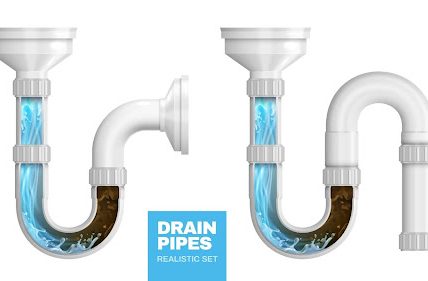Introduction
Amidst growing environmental concerns and the urgent need for sustainable practices, the focus on eco-friendly approaches has extended to unexpected areas, including drain unblocking. As urbanization progresses, so does the issue of clogged drains, leading to flooding, pollution, and adverse effects on ecosystems. Traditional methods often rely on harsh chemicals and mechanical interventions, which can pose significant threats to the environment and public health. However, a paradigm shift towards greener alternatives has gained momentum, introducing innovative and eco-conscious techniques to address drain blockages while minimizing ecological impacts. In this article, we delve into two groundbreaking eco-friendly approaches that not only unclog drains effectively but also prioritize the well-being of our planet.
Preventive Measures for Sustainable Drain Maintenance
Ensuring sustainable drain maintenance goes beyond just addressing blockages; it involves adopting proactive measures to prevent clogs and promote long-term environmental preservation. One key preventive approach is regular maintenance and inspection of drainage systems. Conducting routine checks allows for the early detection of potential issues, enabling timely intervention before problems escalate and cause significant harm to the environment.
Additionally, promoting public awareness and education plays a vital role in sustainable drain maintenance. Educating communities about responsible waste disposal practices, the impact of pollutants on drainage systems, and the importance of reducing single-use plastics can foster a culture of environmental consciousness. By empowering individuals to take ownership of their actions and their connection to the drainage network, we can collectively work towards preserving the health and integrity of our waterways and ecosystems for generations to come.
Natural Enzyme-Based Drain Cleaners
Natural enzyme-based drain cleaners have emerged as a promising eco-friendly alternative to traditional chemical-laden solutions for addressing clogged drains. These cleaners utilize the power of naturally occurring enzymes to break down organic matter, such as grease, hair, and food particles, that contribute to blockages in drainage systems. Unlike harsh chemicals that can harm the environment and corrode pipes over time, enzyme-based cleaners are non-toxic and biodegradable, making them safe for both the planet and human health.
The effectiveness of natural enzyme-based drain cleaners lies not only in their ability to unclog drains efficiently but also in their sustainable approach to maintenance. As the enzymes target and digest organic materials without causing any harm to pipes or the surrounding ecosystem, they support the longevity and integrity of the drainage system. By opting for these environmentally friendly alternatives, individuals and communities can play an active role in reducing their ecological footprint while maintaining the smooth functioning of their drainage infrastructure.
DIY Home Remedies using Non-Toxic Ingredients
When faced with a clogged drain, homeowners can turn to DIY home remedies that utilize non-toxic ingredients, providing effective and environmentally friendly solutions. One such remedy for drain unblocking involves using a combination of baking soda and vinegar. Start by pouring half a cup of baking soda down the drain, followed by half a cup of vinegar. The mixture will create a foaming reaction that helps dislodge debris and break down grease. After letting it sit for about 30 minutes, flush the drain with hot water to clear the blockage.
Another non-toxic DIY approach involves utilizing the power of salt and boiling water. Begin by pouring half a cup of salt down the drain, which acts as an abrasive agent to help loosen the clog. Then, carefully pour boiling water into the drain to flush away the loosened debris. This method is particularly useful for grease-related clogs and can be repeated periodically for preventative maintenance.
Lemon and hot water offer another effective and eco-friendly option. Slice a lemon in half and squeeze its juice down the drain, letting it sit for several minutes. The natural acidity of lemon helps dissolve organic matter and combat unpleasant odors. Follow up with hot water to wash away any remaining residue.
Lastly, a simple mixture of dish soap and hot water can work wonders for minor clogs. Squirt a few tablespoons of dish soap down the drain, and then pour a pot of hot (but not boiling) water down. The soap acts as a lubricant, helping to break up the blockage and allowing it to be washed away by the water.
By harnessing the power of these non-toxic DIY remedies, homeowners can effectively unblock their drains while safeguarding the environment and promoting sustainable practices in their households.
Harnessing the Power of Baking Soda and Vinegar
Harnessing the power of baking soda and vinegar has proven to be a versatile and eco-friendly solution for various household tasks, including drain unblocking. When combined, baking soda (sodium bicarbonate) and vinegar (acetic acid) create a chemical reaction that produces carbon dioxide gas and water. This effervescent reaction creates a foaming action that effectively dislodges and breaks down clogs in drains, making it an excellent alternative to harsh chemical drain cleaners. Moreover, both baking soda and vinegar are non-toxic and biodegradable, ensuring minimal environmental impact while still achieving optimal results.
Beyond drain unblocking, this dynamic duo is also useful for cleaning and deodorizing various surfaces around the house. Whether it’s removing stains from fabrics, eliminating odors in the refrigerator, or even unclogging a showerhead, the natural combination of baking soda and vinegar offers a safe and efficient way to tackle household tasks while promoting eco-consciousness in everyday living. Its simplicity, affordability, and gentle yet effective nature make it a staple in sustainable home maintenance practices.
Conclusion
Traditional methods often rely on harsh chemicals that pose threats to ecosystems and human health, emphasizing the need for greener alternatives. By adopting preventive measures through regular maintenance and public education, we can proactively reduce the occurrence of drain blockages and minimize environmental impacts.
Embracing natural enzyme-based drain cleaners and harnessing the power of baking soda and vinegar showcases the power of simple, non-toxic ingredients in addressing drain blockages effectively. These eco-friendly solutions not only clear clogs but also support the longevity of drainage systems and contribute to a healthier planet. As we continue to explore innovative and sustainable approaches to everyday challenges, incorporating eco-friendly practices like these into our homes and communities will play a crucial role in building a more environmentally conscious and resilient future.





